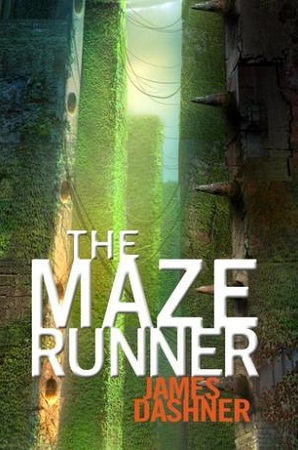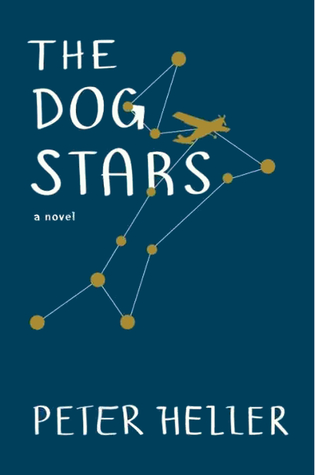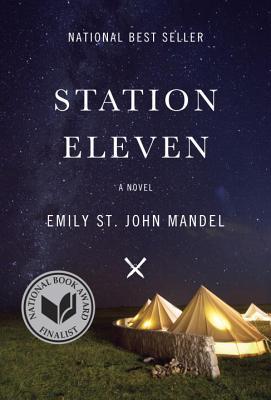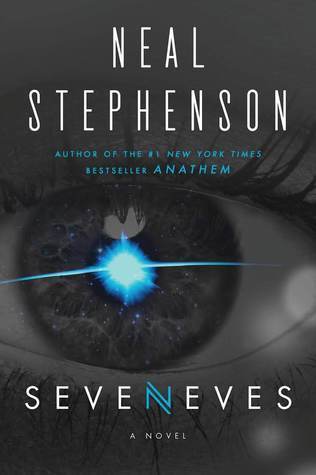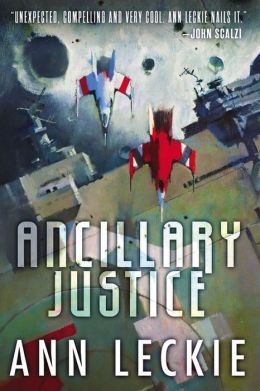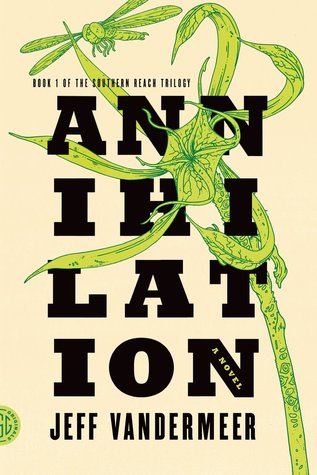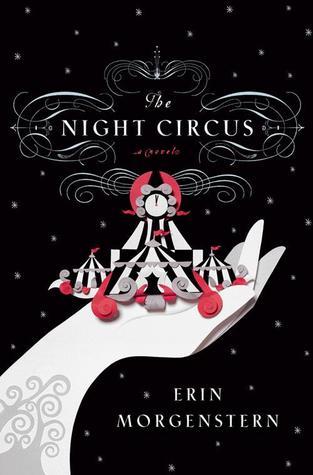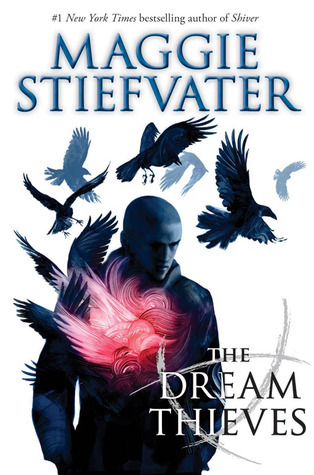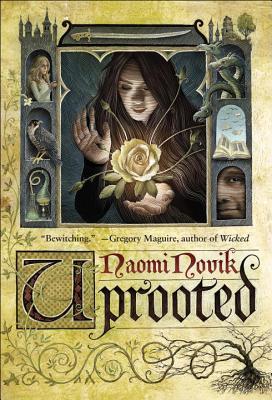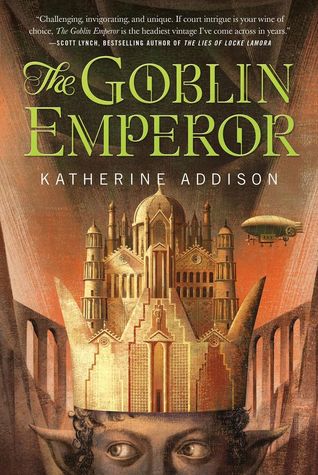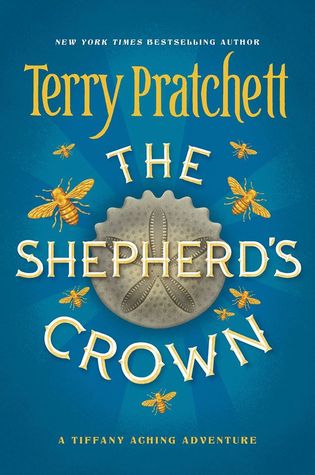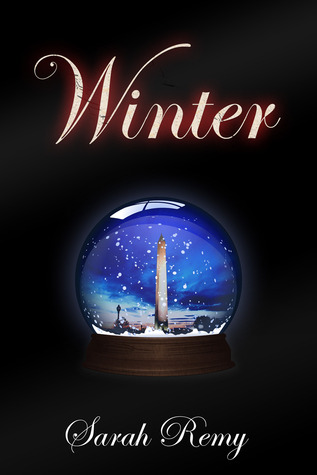Wednesday, December 30, 2015
Saturday, December 26, 2015
What I've Learned About Story: The First Sentence
"I bestow upon thee thy first sentence, writer."
That perfect first sentence is a myth. It will not be given to you by your muse.
That perfect first sentence, if you're lucky, will appear like a hybrid unicorn/dragon and ignite an entire story. It will delight those who read it. Other authors will envy you. If you're not lucky--and most of us aren't--you won't discover that first sentence until your story or book is complete.
There's no formula for creating that first sentence.
It's more important to know where to begin. Do you want to begin from the main character's POV, leading into action? Do you want to create a particular atmosphere (a character is experiencing), leading into action? Do you want to introduce your story with a weird and mysterious statement, leading into action?
Because the first chapters need to draw the reader in, introducing the main character as soon as possible is a must. The antagonist or complication, and the atmosphere, should also be established. If there are other major characters, their subplots should be introduced.
That first sentence shouldn't be an obsession. It'll eventually arrive, like that hybrid unicorn/dragon. It might not reveal itself until the very end. Unless you're lucky enough to have it as your first thought leading into the story, forget about it and just START WRITING. No matter how boring or bad you think your beginning is, it will lead you deeper into the story, into what your character desires, and how they're going to get what they desire. You can punch up the beginning later and make it awesome.
SOME OF MY FAVORITE FIRST SENTENCES:
"Marianne had sharp, cold eyes and she was spiteful but her father loved her." (Heroes and Villains by Angela Carter
"Miles past a town named Vidalia, town named after an onion, onion named after a town, but Dead Girl has no idea how many miles, the vast, unremarkable Georgia night like a seamless quilt of stars and kudzu vines, and all those roads look the same to her." (Les Fleurs Empoisonnees by Caitlin R. Kiernan)
"I met them in Magic, Witchcraft, and Religion." (Waking the Moon by Elizabeth Hand)
"Sara Kendall once read somewhere that the tale of the world is like a tree. (Moonheart by Charles de Lint)
"Blue Sargent had forgotten how many times she'd been told that she would kill her true love." (The Raven Boys by Maggie Stiefvater
Final Giveaway! The Raven Boys by Maggie Stiefvater
Enter to win a copy of Maggie Stiefvater's The Raven Boys, a dark fantasy about a girl named Blue who's been told the boy she first kisses will die, and the four boys she meets--Gansey, the rich boy on an obsessive quest; Ronan, the bad boy with a secret; Adam, the poor boy fighting for what he has; and Noah, an elusive boy who also has a secret. Beautifully written, with strong and original characters, this is the beginning of a fantasy series you won't be able to quit.
My last giveaway of the year, this is open to residents of the U.S. and Canada only!
One copy will be awarded to one winner. The contest begins Dec. 27 and ends Jan. 3.
All you have to do to enter is Twitter, Follow, or Visit my Facebook Fan Page!
a Rafflecopter giveaway
Saturday, December 19, 2015
FANTASY & SF BOOKS TO GIVE FOR THE HOLIDAYS!
Looking for that great book gift? These Fantasy & SF Harper Voyager authors have some fantastic suggestions!
CHRISTI J. WHITNEY, author of Grey, Book 1 of the Romany Outcasts. http://christijwhitney.com/?page_id=52
THE MAZE RUNNER by James Dashner
WITHER by Lauren DeStefano
I've been devouring some amazing books by some talented HV authors as well!
EDWARD ASHTON, author of Three Days in April. http://edward-ashton.squarespace.com/
THE DOG STARS by Peter Heller
STATION ELEVEN by Emily St. John Mandel
These are essentially disaster novels, telling the story of what happens after a sudden plague sweeps away nearly all of humanity, but both are written in a lyrical, literary style that inspires equal parts admiration and jealousy.
JASON LAPIER, author of Unexpected Rain, Book 1 of the Dome Trilogy. http://jasonwlapier.com/
I'm a long-time Neal Stephenson fan, but his latest this year, SEVENEVES, may be his best yet.
BISHOP O'CONNELL, author of The Stolen, the Forgotten, and Three Promises. http://aquietpint.com/
My favorite books this year are a tie between ANCILLARY JUSTICE, because of the way Ann Leckie weaves the AI story, making it almost god-like.
The other is THE ART OF ASKING by Amanda Palmer, because it's just a powerful and personal story.
TIM LEES, author of The God Hunter and Devil in the Wires. https://timlees.wordpress.com/
Books that really impressed me this year (and I'm cheating a bit, because it takes me so long to get around to reading stuff these days): Jeff Vandermeer's "Southern Reach" Trilogy, ANNIHILATION, AUTHORITY, and ACCEPTANCE. This is what a real alien invasion would be like, practically unfathomable to humanity. Somehow Vandermeer conveys this while providing a hugely entertaining read.
Another book I really liked was a very old one--Frederick Busch's GIRLS, a thriller which is also a compelling study of character, landscape, and community and, like the Vandermeer, is constantly pushing the boundaries of the genre while still delivering a satisfying narrative.
INGRID SEYMOUR, author of Ignite the Shadows. http://ingridseymour.com/blog/
My favorite books this year were THE NIGHT CIRCUS by Erin Morgenstern for it's amazing imagery and otherworldly feel.
And THE DREAM THIEVES by Maggie Stiefvater for its wonderfully drawn characters.
TERRY NEWMAN, author of Detective Strongoak and the Case of the Dead Elf. http://nicelystrongoak.com/
My favorite book of the year was LAMENTATION (The Shardlake series) by C.J. Sansom, as he made history (almost) as good as fantasy to me.
KELLEY GRANT, author of Desert Rising and The Obsidian Temple. There have been so many wonderful releases this year, but I'll settle on two. http://www.kelleygrantbooks.com/blog
Naomi Noviks UPROOTED has a lyrical voice and is a beautifully woven tale.
Katherine Addison mingles politics and a compelling personal journey in THE GOBLIN EMPEROR.
GRAEME K. TALBOYS, author of Stealing into Winter and Exile and Pilgrim (Books 1 & 2 of Shadow in the Storm). http://grumsworld.blogspot.com/
My three favorite books this year were THE WHISPERING SWARM by Michael Moorcock
THE WATERBORNE EXILE by Susan Murray
THE SHEPHERD'S CROWN by Terry Pratchett
STEPHEN MOORE, author of the fantasy Graynelore. https://stephenmoorefantasyauthor.wordpress.com/
My favorite book of the year is a historical non-fiction. THE KING IN THE NORTH by Max Adams. Set in the dark ages, it's a brilliant telling of the life story of King Oswald of Northumbria and the subsequent cult of St. Oswald that developed in the centuries following his death. This is history brought to life and beautifully told.
And don't forget to take a look at the wonderful selection of books these authors have written, all available from Harper Voyager.
CHRISTI J. WHITNEY, author of Grey, Book 1 of the Romany Outcasts. http://christijwhitney.com/?page_id=52
THE MAZE RUNNER by James Dashner
WITHER by Lauren DeStefano
I've been devouring some amazing books by some talented HV authors as well!
EDWARD ASHTON, author of Three Days in April. http://edward-ashton.squarespace.com/
THE DOG STARS by Peter Heller
STATION ELEVEN by Emily St. John Mandel
These are essentially disaster novels, telling the story of what happens after a sudden plague sweeps away nearly all of humanity, but both are written in a lyrical, literary style that inspires equal parts admiration and jealousy.
JASON LAPIER, author of Unexpected Rain, Book 1 of the Dome Trilogy. http://jasonwlapier.com/
I'm a long-time Neal Stephenson fan, but his latest this year, SEVENEVES, may be his best yet.
BISHOP O'CONNELL, author of The Stolen, the Forgotten, and Three Promises. http://aquietpint.com/
My favorite books this year are a tie between ANCILLARY JUSTICE, because of the way Ann Leckie weaves the AI story, making it almost god-like.
The other is THE ART OF ASKING by Amanda Palmer, because it's just a powerful and personal story.
TIM LEES, author of The God Hunter and Devil in the Wires. https://timlees.wordpress.com/
Books that really impressed me this year (and I'm cheating a bit, because it takes me so long to get around to reading stuff these days): Jeff Vandermeer's "Southern Reach" Trilogy, ANNIHILATION, AUTHORITY, and ACCEPTANCE. This is what a real alien invasion would be like, practically unfathomable to humanity. Somehow Vandermeer conveys this while providing a hugely entertaining read.
Another book I really liked was a very old one--Frederick Busch's GIRLS, a thriller which is also a compelling study of character, landscape, and community and, like the Vandermeer, is constantly pushing the boundaries of the genre while still delivering a satisfying narrative.
INGRID SEYMOUR, author of Ignite the Shadows. http://ingridseymour.com/blog/
My favorite books this year were THE NIGHT CIRCUS by Erin Morgenstern for it's amazing imagery and otherworldly feel.
And THE DREAM THIEVES by Maggie Stiefvater for its wonderfully drawn characters.
TERRY NEWMAN, author of Detective Strongoak and the Case of the Dead Elf. http://nicelystrongoak.com/
My favorite book of the year was LAMENTATION (The Shardlake series) by C.J. Sansom, as he made history (almost) as good as fantasy to me.
KELLEY GRANT, author of Desert Rising and The Obsidian Temple. There have been so many wonderful releases this year, but I'll settle on two. http://www.kelleygrantbooks.com/blog
Naomi Noviks UPROOTED has a lyrical voice and is a beautifully woven tale.
Katherine Addison mingles politics and a compelling personal journey in THE GOBLIN EMPEROR.
GRAEME K. TALBOYS, author of Stealing into Winter and Exile and Pilgrim (Books 1 & 2 of Shadow in the Storm). http://grumsworld.blogspot.com/
My three favorite books this year were THE WHISPERING SWARM by Michael Moorcock
THE WATERBORNE EXILE by Susan Murray
THE SHEPHERD'S CROWN by Terry Pratchett
STEPHEN MOORE, author of the fantasy Graynelore. https://stephenmoorefantasyauthor.wordpress.com/
My favorite book of the year is a historical non-fiction. THE KING IN THE NORTH by Max Adams. Set in the dark ages, it's a brilliant telling of the life story of King Oswald of Northumbria and the subsequent cult of St. Oswald that developed in the centuries following his death. This is history brought to life and beautifully told.
And don't forget to take a look at the wonderful selection of books these authors have written, all available from Harper Voyager.
Tuesday, December 15, 2015
Sarah Remy, Author of Stonehill Downs
Welcome, Sarah Remy, author of Stonehill Downs and Across the Long Sea (Harper Voyager 2014-2015) to It's All About Story.
Sarah's site: http://www.sarahremy.com/
1) Describe the Stonehill Downs series in one paragraph.
Stonehill is a forensic mystery in a fantasy setting. Ghosts and monsters and magic abound, but so do laboratories and autopsies and microscopes. It's also a story about relationships and loss; Mal's lost a wife, Avani's lost her entire civilization, Everin's lost a kingdom, and Liam's never had anything to claim his own. Each character deals with his or her deprivation in varied ways. It's dark fantasy, but the heart of the story is about moving forward no matter what life throws at you.
2) What inspired Stonehill Downs?
I like spooky stories and I love the fantasy genre. I'm also a huge Sherlock Holmes fan. I wanted to mix these things together and see what sprung forth. Each of the four books in the series deal with a different dark mystery set against the background of world politics, war, and magic.
3) Was Stonehill Downs your first work of fiction?
No. I've written several under my own imprint.
4) What song or music piece would you put on a soundtrack for Stonehill Downs?
I'm actually very much a writing soundtrack person. When I find music that works, I set it on loop, and that's what I listen to through an entire manuscript. I like to think it puts me in 'the zone'. My Manhattan Exiles series (an Irish urban fantasy) was all Mumford and Sons. I'm working on a Beauty and the Beast twist at the moment--it's Of Monsters and Men. Stonehill and its sequel, Across the Long Sea, were both The Killers, and I'll go back to that soundtrack when I continue with volumes three and four.
5) Which character in Stonehill Downs was easy to write? Which was the most difficult?
Mal's been the easiest so far, because he's on a downturn,and it's always easier to write a character coming apart at the seams than one growing and becoming. Avani's a very self-aware person, but at the same time she's learning that the things she thinks she understands about the world might just possibly be incorrect. She is growing. And that's much harder to write.
6) What is your writing space like? Or can you write anywhere?
I have an office in an upstairs enclosed porch where I write during warm months. When the snow starts falling I migrate down to a chair in front of our gas fireplace. I can write anywhere if a deadline presses--I've written in a folding chair at a horse show while I'm waiting to ride a course--but I prefer the quiet of my own space.
7) Any odd writing habits? Rituals?
I like to have a Diet Coke and a good internet connection, if at all possible. I sit down and answer emails and surf the web for half an hour or so before getting down to actual work. Sometimes this is a bad habit but most of the time scrolling through, say, Tumblr, really helps me disconnect from my real world, non-writing obligations, of which I have a ton.
8) George Martin describes two kinds of outliners, the Gardener (let it grow) or the Architect (plan it). Which are you?
Ah! The plotter or the pantser. I'm a pantser. I get into a story with a starting point and ending point and a general idea of what I want to say, but things happen and the old cliche of the character taking control is a cliche because it's true. The subconscious mind produces odd fancies. I surprise myself constantly, wondering: Where the hell did that plot bunny come from?
The difficulty with being a pantser of course, is that it all comes back to bite you during the editing process. There's a lot of crossing out or clarifying one has to do. I also jot down notes as I go along, which helps a lot.
9) What are some of your favorite world myths or fairy/folk tales? Why?
Irish fairy tales. I studied Irish lit in college; I love the old Tuatha De legends. There are so many layers, so much beauty and also horror in so many of them.
10) What is your favorite fictional world, one you'd want to visit?
Oh, I'd like to shadow Holmes and Watson in London in 1895. But I wouldn't want to live there. I enjoy my 21st century luxuries.
11) Who is your favorite fictional character?
Robin Hobb's FitzChivalry Farseer. If you haven't yet read Hobb's Realm of the Elderlings series, you should.
12) What is the best writing advice you've ever received?
Write what you like and don't let other people stop you.
13) In Stonehill Downs, are there any hidden acknowledgements to friends, places you've lived, favorite writers, etc;
Liam's the name of my nephew. When I started writing Stonehill I didn't realize the character was going to have a larger arc, I needed a placeholder moniker, so I used my (perfect) young nephew's name. Then my Liam became more important to the story (pantser, remember?) and somehow I just couldn't find a better fit. So it stuck. I usually try NOT to use the names of people I'm related to. My nephew's six. Maybe he'll never know.
14) Can you tell us what we have to look forward to after the Stonehill Downs series?
Magic-madness, a city-wide serial killer, sidhe uprising and a war between kingdoms. Also friendship, loyalty, and a wee bit of romance, but maybe not where you'd expect to find it. And a lot of character growth, which means I've my work set out for me.
Thank you, Sarah!
Sarah's books are available on Amazon.
The Manhatten Exiles series
Sarah's site: http://www.sarahremy.com/
1) Describe the Stonehill Downs series in one paragraph.
Stonehill is a forensic mystery in a fantasy setting. Ghosts and monsters and magic abound, but so do laboratories and autopsies and microscopes. It's also a story about relationships and loss; Mal's lost a wife, Avani's lost her entire civilization, Everin's lost a kingdom, and Liam's never had anything to claim his own. Each character deals with his or her deprivation in varied ways. It's dark fantasy, but the heart of the story is about moving forward no matter what life throws at you.
2) What inspired Stonehill Downs?
I like spooky stories and I love the fantasy genre. I'm also a huge Sherlock Holmes fan. I wanted to mix these things together and see what sprung forth. Each of the four books in the series deal with a different dark mystery set against the background of world politics, war, and magic.
3) Was Stonehill Downs your first work of fiction?
No. I've written several under my own imprint.
4) What song or music piece would you put on a soundtrack for Stonehill Downs?
I'm actually very much a writing soundtrack person. When I find music that works, I set it on loop, and that's what I listen to through an entire manuscript. I like to think it puts me in 'the zone'. My Manhattan Exiles series (an Irish urban fantasy) was all Mumford and Sons. I'm working on a Beauty and the Beast twist at the moment--it's Of Monsters and Men. Stonehill and its sequel, Across the Long Sea, were both The Killers, and I'll go back to that soundtrack when I continue with volumes three and four.
5) Which character in Stonehill Downs was easy to write? Which was the most difficult?
Mal's been the easiest so far, because he's on a downturn,and it's always easier to write a character coming apart at the seams than one growing and becoming. Avani's a very self-aware person, but at the same time she's learning that the things she thinks she understands about the world might just possibly be incorrect. She is growing. And that's much harder to write.
6) What is your writing space like? Or can you write anywhere?
I have an office in an upstairs enclosed porch where I write during warm months. When the snow starts falling I migrate down to a chair in front of our gas fireplace. I can write anywhere if a deadline presses--I've written in a folding chair at a horse show while I'm waiting to ride a course--but I prefer the quiet of my own space.
7) Any odd writing habits? Rituals?
I like to have a Diet Coke and a good internet connection, if at all possible. I sit down and answer emails and surf the web for half an hour or so before getting down to actual work. Sometimes this is a bad habit but most of the time scrolling through, say, Tumblr, really helps me disconnect from my real world, non-writing obligations, of which I have a ton.
8) George Martin describes two kinds of outliners, the Gardener (let it grow) or the Architect (plan it). Which are you?
Ah! The plotter or the pantser. I'm a pantser. I get into a story with a starting point and ending point and a general idea of what I want to say, but things happen and the old cliche of the character taking control is a cliche because it's true. The subconscious mind produces odd fancies. I surprise myself constantly, wondering: Where the hell did that plot bunny come from?
The difficulty with being a pantser of course, is that it all comes back to bite you during the editing process. There's a lot of crossing out or clarifying one has to do. I also jot down notes as I go along, which helps a lot.
9) What are some of your favorite world myths or fairy/folk tales? Why?
Irish fairy tales. I studied Irish lit in college; I love the old Tuatha De legends. There are so many layers, so much beauty and also horror in so many of them.
10) What is your favorite fictional world, one you'd want to visit?
Oh, I'd like to shadow Holmes and Watson in London in 1895. But I wouldn't want to live there. I enjoy my 21st century luxuries.
11) Who is your favorite fictional character?
Robin Hobb's FitzChivalry Farseer. If you haven't yet read Hobb's Realm of the Elderlings series, you should.
12) What is the best writing advice you've ever received?
Write what you like and don't let other people stop you.
13) In Stonehill Downs, are there any hidden acknowledgements to friends, places you've lived, favorite writers, etc;
Liam's the name of my nephew. When I started writing Stonehill I didn't realize the character was going to have a larger arc, I needed a placeholder moniker, so I used my (perfect) young nephew's name. Then my Liam became more important to the story (pantser, remember?) and somehow I just couldn't find a better fit. So it stuck. I usually try NOT to use the names of people I'm related to. My nephew's six. Maybe he'll never know.
14) Can you tell us what we have to look forward to after the Stonehill Downs series?
Magic-madness, a city-wide serial killer, sidhe uprising and a war between kingdoms. Also friendship, loyalty, and a wee bit of romance, but maybe not where you'd expect to find it. And a lot of character growth, which means I've my work set out for me.
Thank you, Sarah!
Sarah's books are available on Amazon.
The Manhatten Exiles series
Tuesday, December 8, 2015
Win a copy of Anna Dressed in Blood by Kendare Blake
I'm a little late with my three November giveaways, which were to celebrate my birthday. So here's the second one: Win a copy of Kendare Blake's Anna Dressed in Blood!
There will be ONE WINNER. This contest is open to the residents of the U.S. and Canada only. The contest ends at midnight on Dec. 16.
Cas Lowood has inherited an unusual vocation: he kills the dead.
A ghost hunter boy and a deadly ghost girl. It's a dark and creepy story and Cas is quick with the quips, but he has a darkness in him as well. There's a tragic secret, ghost lore aplenty, and, of course, the friends.
What's the scariest ghost story you've ever read?
a Rafflecopter giveaway
Monday, December 7, 2015
Three Promises by Bishop O'Connell
Bishop O'Connell is a consultant, writer, poet, blogger, and member of the New Hampshire Writer's Project. Born in Naples, Italy, while his father was stationed in Sardinia, Bishop grew up in San Diego, California, where he fell in love with the ocean and fish tacos. While wandering the country for work and school, he experienced autumn in New England. Soon after,he settled in Manchester, New Hampshire, where he collects swords and kilts. But he only dons one of those two in public. He can be found online at A Quiet Pint (www.aquietpint.com) where he muses philosophical on the various aspects of writing and the road to getting published.
Three Promises: An American Faerie Tale Collection is my third book. It’s a compilation of short stories—technically three short stories and a novella—and while I’ve always struggled with short fiction, that wasn’t the case here. These stories seemed to write themselves, and the characters truly shine. In my previous books, The Stolen & The Forgotten (available anywhere books are sold) the stories drove the characters. In Three Promises, the opposite is true. There’s no child to rescue, no shadowy enemy snatching kids off the street, and you get to see the characters for who they are. I was worried they wouldn’t stand on their own, but I think they didn’t just stand, they soared I really liked my characters before; now, I love them. I hope you will, too. Here’s a sample from one of the short stories, “The Legacy of Past Promises”:
Elaine stared at the painting. While her body didn’t move, her heart and mind danced in the halls of heaven. The depth and intensity of mortal passion was astounding to her, and her ability to experience it through art was like a drug. The heavy silence that filled her vast loft was broken by the high-pitched whistle of the teakettle. Elaine extricated herself from the old battered chair, which was so comfortable it should be considered a holy relic. She crossed her warehouse flat to the kitchen area, purposely stepping heavily so the old hardwood floor creaked. She smiled at the sound. It was like a whisper that contained all the memories the building had seen. Unlike the fae, the mortal world was constantly aging. But for those who knew how to listen, it sang of a life well lived in every tired sound. The flat took up the entire top floor of a warehouse that had been abandoned in the early 1900s. She owned it now and was its only permanent tenant. The lower floors of the five-story building were offered as a place to stay to the fifties—half-mortal, half-fae street kids, unwelcome in either world—she knew and trusted. But with all the unrest in Seattle, she was currently its only occupant. She turned off the burner and the kettle went quiet. Three teaspoons of her personal tea blend went into the pot. The water, still bubbling, went next. The familiar and comforting aroma filled the air, black tea with whispers of orange blossom. Light poured in from the south-facing wall of floor-to-ceiling windows. But she ignored the view of the Seattle skyline. The twenty-foot ceiling was constructed of heavy wooden beams and slats, broken only by the silver of air ducts, a relatively recent addition. The floor was oak, original to the building but well maintained over the years, as were the exposed bricks of the walls and pillars. The flat was large, 5,000 square feet of open space, sparsely furnished with secondhand pieces. They had been purchased so long ago, they were technically antiques now. But she looked past all that to the paintings that covered the walls, collected over centuries and not always through strictly legal means. Nearly every school was represented by at least one piece. Her eyes followed the heavy strokes of a Van Gogh, thought lost by the general public. The emotions and impressions left behind by the artist washed over her. The melancholy and near madness, the longing and love, all mixed together like the colors of the painting itself. The smell of her tea, now perfectly brewed, broke her reverie. As she poured tea into a large clay mug, her gaze settled on a Rossetti. Elaine smiled as she remembered seeing the painting come to life. Gabriel Rossetti—Elaine could never bring herself to think of him as Dante, it was such an absurd name—had captured Jane’s beauty spectacularly. Jane Morris had been a truly beautiful mortal; it was no wonder Gabriel so often chose her as a model. Elaine carried the mug back to her chair, sank into the plush cushions, and hit play on the remote. Vivaldi’s Cello Concerto no. 4 in A Minor filled the space. She closed her eyes, letting the music fill her soul. The mournful cello danced with the playful harpsichord. She sipped her tea, opened her eyes, and her gaze fell upon another painting, the one she’d almost lost. Unwanted memories rose to the surface—and just like that, she was back in France, deep in the occupied zone. The war—or more correctly, the Nazis—had mostly turned the once beautiful countryside and small villages to rubble. The jackbooted thugs had marched with impunity, leaving only death and destruction in their wake Even now she could almost hear the voices of her long-dead friends. “Êtes-vous attentive?” Elaine blinked. “Pardon?” François narrowed his eyes. “I asked if you were paying attention,” he said, his French heavy with a Parisian accent. “But you answer my question anyway, yes?” There were snickers from the collection of men, scarcely more than boys, gathered around the table and map. “Sorry,” Elaine said, her own carefully applied accent fitting someone from the southern countryside. “You were saying a convoy of three German trucks will be coming down this road.” She traced the route on the map with her finger. “And this being one of the few remaining bridges, they’ll attempt to cross here. Did I miss something?” François turned a little pink, then a deeper red when the chuckles turned on him. When Paul offered him the bottle of wine, François’s smile returned, and he laughed as well. “Our little sparrow misses nothing, no?” he asked, then took a swallow of wine before offering her the bottle. Elaine smiled and accepted. Six hours later, just before dawn, the explosives had been set and the group was in position. She sat high in a tree, her rifle held close. Despite having cast a charm to turn the iron into innocuous fae iron (a taxing process that had taken her the better part of three weeks), she still wore gloves. On more than one occasion she’d had to use another weapon, one that hadn’t been magically treated. As the first rays of dawn touched her cheeks, she had only a moment to savor the sublime joy of the morning light. Her keen eyes picked up the telltale clouds of black diesel smoke before she ever saw the vehicles. She made a sparrow call, alerting her fellow resistance fighters. A thrush sounded back. They were ready. Elaine hefted her rifle and sighted down the barrel, her fingertip caressing the trigger. She watched the rise, waiting for the first truck to come into view. Her eyes went wide and her stomach twisted when she saw the two Hanomags, armored halftrack personnel carriers, leading the three big trucks. That was two units, more than twenty soldiers. She made another birdcall, a nightingale, the signal to abort. The thrush call came in reply, repeated twice. Proceed. “Fools,” she swore. “You’re going to get us all killed.” She sighted down the rifle again and slowed her breathing. They were outnumbered almost three to one and up against armor with nothing but rifles and a few grenades. “Just an afternoon walk along the Seine,” she said. Of course Germany now controlled Paris and the Seine, so maybe it was an accurate comparison. The caravan crawled down the muddy road, inching closer to the bridge. Looking through the scope, she watched the gunner on the lead Hanomag. His head was on a swivel, constantly looking one way then another. Not that she could blame him. This was a textbook place for an ambush. The first Hanomag stopped just shy of the explosive charges. Her heart began to race. Had they spotted it? No, it was buried and the mud didn’t leave any sign that even she could see. No way could these mortal goose-steppers have— An officer in the black uniform of the SS stepped out of the second Hanomag, flanked by half a dozen regular army soldiers. Elaine sighted him with her scope, noted her heartbeat, and placed her finger on the trigger. The tingle of magic danced across her skin as the officer drew a talisman from under his coat. “Offenbaren sich!” he shouted. There was a gust of wind, and the leaves on the trees near her rustled. She whispered a charm and felt it come up just as the magic reached her. The spell slid over her harmlessly. Her friends weren’t so lucky. A red glow pulsed from the spot where the explosives had been set, and faint pinkish light shone from six spots around the convoy. “Aus dem Hinterhalt überfallen!” the officer shouted and pointed to the lights. The gunners on the Hanomags turned and the soldiers protecting the officer took aim. “Merde,” Elaine cursed, then sighted and fired. There was a crack, and the officer’s face was a red mist. Then everything went to hell. Soldiers poured from the trucks and the Hanomags, the gunners turned their MG-42s toward the now-fading lights marking François and the others. The soldiers took cover behind the armored vehicles and divided their fire between her and her compatriots. She was well concealed, so most of the shots did nothing more than send shredded leaves and bark through the air. Only a few smacked close enough to cause her unease. Elaine ignored them and sighted one of the MG-42 gunners. “Vive la France!” someone shouted. Elaine looked up just in time to see Paul leap from cover and charge at the soldiers, drawing their attention and fire. She watched in horror as the Nazi guns tore him to shreds. Somehow, before falling, he lobbed two grenades into one of the armored vehicles. There came a shout of panic from inside the Hanomag and seconds later came two concussive booms. Debris flew up from the open top of the halftrack and the shouts stopped. François and the others took advantage of Paul’s sacrifice, moved to different cover, and started firing. A few Nazi soldiers dropped, but the remaining MG-42 began spraying the area with a hail of bullets. Elaine gritted her teeth and fired two shots; both hit the gunner, and he fell. This again drew fire in her direction. The fight became a blur after that. She took aim and fired, took aim and fired, over and over again, pausing only long enough to reload. It wasn’t until she couldn’t find another target that Elaine realized it was done, and all the Nazis were dead or dying. She lay on the branch for a long moment, until the ringing in her ears began to fade. When she moved, a sharp pain in her shoulder brought her up short. More gingerly, she shifted and saw tendrils of white light filled with motes of green drifting from her shoulder. At the center was a growing blossom of gold blood. She rolled and dropped from the tree, landing only slightly less gracefully than normal. Still, the jolt made the pain jump a few numbers on the intensity scale. She clenched her jaw, hefted her rifle, and carefully inspected the scene. The Germans were all dead, but the driver of one of the Hanomags was still alive. He took a couple shots at her with his Luger, but he’d apparently caught some ricochets or shrapnel because he didn’t even come close. Elaine put him down with a shot through the viewing port. “Please, help me,” someone said in bad French. Elaine spun to see a German soldier lying on the ground. He was little more than a kid, maybe sixteen; it didn’t even look like he’d started shaving. She just stared at his tear-filled eyes, blood running down his cheek from the corner of his mouth. He had at least half a dozen holes in his chest. He was already dead, he just didn’t know it. “Ja,” she said. “Dank—” His thanks were swallowed by the loud report of the rifle as she put a bullet between his eyes. There was nothing she, or anyone else, could’ve done for him. She wiped tears away and muttered a curse at Hitler and his megalomaniacal plans. After double-checking that all the soldiers were dead, Elaine made her sparrow call. Her mouth was so dry, the call was hardly recognizable. Only silence answered her. Swallowing, she hardened her heart and went to where François and the others had been taking cover. She couldn’t bring herself to look down at the bloodied mess that had been Paul. She just kept walking. Her rifle fell to the ground, then she went to her knees, sobbing, covering her mouth with her good hand. They were dead, which wasn’t a surprise, but it didn’t make finding them any less heartbreaking. Rémy was almost unrecognizable. If it wasn’t for his blond hair, now matted with blood—Elaine’s stomach twisted and she retched to one side. Michel, Julien, Daniel, Christophe, and Christian were in slightly better shape, for the most part. Julien’s left arm had been chewed up by the machine gun, and Christophe’s torso had been ripped open, allowing his insides to spill out. Elaine sobbed and turned to François. His rifle had been discarded and his pistol was still clutched in his left hand, two fingers having been shot off his right. Sadness mixed with anger, and she screamed curses at him. “You arrogant fool!” she said between sobs. “Why didn’t you just call off the operation? You got them all killed!” It wasn’t long before Elaine grew numb inside. She used her fae healer’s kit to remove the bullet from her shoulder, and a liberal smearing of healing ointment numbed the pain enough to give her almost full use of her arm again. Lastly, she set the pinkish, putty-like dóú craiceann over the wound, sealing it like a second skin. She’d never been much of a healer herself, but she got the job done. With effort, and still careful of her wounded shoulder, she dragged Paul into the cover to join his brothers-in-arms. Elaine whispered a charm and the earth drew itself up and over her friends. A moment later, lush green grass covered the seven mounds. “Adieu, mes amis,” she said softly.
The ebook is only $0.99 (and how can you not buy a $0.99 book?), but if you preorder the paperback (releases 1/8/16 and is only $3.99) from The Fountain Bookstore, not only will it be signed, but you’ll get an exclusive gift. As a nice bonus, you can also order signed copies of The Stolen and The Forgotten while you’re there, and don’t worry, they ship worldwide.
Three Promises: An American Faerie Tale Collection is my third book. It’s a compilation of short stories—technically three short stories and a novella—and while I’ve always struggled with short fiction, that wasn’t the case here. These stories seemed to write themselves, and the characters truly shine. In my previous books, The Stolen & The Forgotten (available anywhere books are sold) the stories drove the characters. In Three Promises, the opposite is true. There’s no child to rescue, no shadowy enemy snatching kids off the street, and you get to see the characters for who they are. I was worried they wouldn’t stand on their own, but I think they didn’t just stand, they soared I really liked my characters before; now, I love them. I hope you will, too. Here’s a sample from one of the short stories, “The Legacy of Past Promises”:
Elaine stared at the painting. While her body didn’t move, her heart and mind danced in the halls of heaven. The depth and intensity of mortal passion was astounding to her, and her ability to experience it through art was like a drug. The heavy silence that filled her vast loft was broken by the high-pitched whistle of the teakettle. Elaine extricated herself from the old battered chair, which was so comfortable it should be considered a holy relic. She crossed her warehouse flat to the kitchen area, purposely stepping heavily so the old hardwood floor creaked. She smiled at the sound. It was like a whisper that contained all the memories the building had seen. Unlike the fae, the mortal world was constantly aging. But for those who knew how to listen, it sang of a life well lived in every tired sound. The flat took up the entire top floor of a warehouse that had been abandoned in the early 1900s. She owned it now and was its only permanent tenant. The lower floors of the five-story building were offered as a place to stay to the fifties—half-mortal, half-fae street kids, unwelcome in either world—she knew and trusted. But with all the unrest in Seattle, she was currently its only occupant. She turned off the burner and the kettle went quiet. Three teaspoons of her personal tea blend went into the pot. The water, still bubbling, went next. The familiar and comforting aroma filled the air, black tea with whispers of orange blossom. Light poured in from the south-facing wall of floor-to-ceiling windows. But she ignored the view of the Seattle skyline. The twenty-foot ceiling was constructed of heavy wooden beams and slats, broken only by the silver of air ducts, a relatively recent addition. The floor was oak, original to the building but well maintained over the years, as were the exposed bricks of the walls and pillars. The flat was large, 5,000 square feet of open space, sparsely furnished with secondhand pieces. They had been purchased so long ago, they were technically antiques now. But she looked past all that to the paintings that covered the walls, collected over centuries and not always through strictly legal means. Nearly every school was represented by at least one piece. Her eyes followed the heavy strokes of a Van Gogh, thought lost by the general public. The emotions and impressions left behind by the artist washed over her. The melancholy and near madness, the longing and love, all mixed together like the colors of the painting itself. The smell of her tea, now perfectly brewed, broke her reverie. As she poured tea into a large clay mug, her gaze settled on a Rossetti. Elaine smiled as she remembered seeing the painting come to life. Gabriel Rossetti—Elaine could never bring herself to think of him as Dante, it was such an absurd name—had captured Jane’s beauty spectacularly. Jane Morris had been a truly beautiful mortal; it was no wonder Gabriel so often chose her as a model. Elaine carried the mug back to her chair, sank into the plush cushions, and hit play on the remote. Vivaldi’s Cello Concerto no. 4 in A Minor filled the space. She closed her eyes, letting the music fill her soul. The mournful cello danced with the playful harpsichord. She sipped her tea, opened her eyes, and her gaze fell upon another painting, the one she’d almost lost. Unwanted memories rose to the surface—and just like that, she was back in France, deep in the occupied zone. The war—or more correctly, the Nazis—had mostly turned the once beautiful countryside and small villages to rubble. The jackbooted thugs had marched with impunity, leaving only death and destruction in their wake Even now she could almost hear the voices of her long-dead friends. “Êtes-vous attentive?” Elaine blinked. “Pardon?” François narrowed his eyes. “I asked if you were paying attention,” he said, his French heavy with a Parisian accent. “But you answer my question anyway, yes?” There were snickers from the collection of men, scarcely more than boys, gathered around the table and map. “Sorry,” Elaine said, her own carefully applied accent fitting someone from the southern countryside. “You were saying a convoy of three German trucks will be coming down this road.” She traced the route on the map with her finger. “And this being one of the few remaining bridges, they’ll attempt to cross here. Did I miss something?” François turned a little pink, then a deeper red when the chuckles turned on him. When Paul offered him the bottle of wine, François’s smile returned, and he laughed as well. “Our little sparrow misses nothing, no?” he asked, then took a swallow of wine before offering her the bottle. Elaine smiled and accepted. Six hours later, just before dawn, the explosives had been set and the group was in position. She sat high in a tree, her rifle held close. Despite having cast a charm to turn the iron into innocuous fae iron (a taxing process that had taken her the better part of three weeks), she still wore gloves. On more than one occasion she’d had to use another weapon, one that hadn’t been magically treated. As the first rays of dawn touched her cheeks, she had only a moment to savor the sublime joy of the morning light. Her keen eyes picked up the telltale clouds of black diesel smoke before she ever saw the vehicles. She made a sparrow call, alerting her fellow resistance fighters. A thrush sounded back. They were ready. Elaine hefted her rifle and sighted down the barrel, her fingertip caressing the trigger. She watched the rise, waiting for the first truck to come into view. Her eyes went wide and her stomach twisted when she saw the two Hanomags, armored halftrack personnel carriers, leading the three big trucks. That was two units, more than twenty soldiers. She made another birdcall, a nightingale, the signal to abort. The thrush call came in reply, repeated twice. Proceed. “Fools,” she swore. “You’re going to get us all killed.” She sighted down the rifle again and slowed her breathing. They were outnumbered almost three to one and up against armor with nothing but rifles and a few grenades. “Just an afternoon walk along the Seine,” she said. Of course Germany now controlled Paris and the Seine, so maybe it was an accurate comparison. The caravan crawled down the muddy road, inching closer to the bridge. Looking through the scope, she watched the gunner on the lead Hanomag. His head was on a swivel, constantly looking one way then another. Not that she could blame him. This was a textbook place for an ambush. The first Hanomag stopped just shy of the explosive charges. Her heart began to race. Had they spotted it? No, it was buried and the mud didn’t leave any sign that even she could see. No way could these mortal goose-steppers have— An officer in the black uniform of the SS stepped out of the second Hanomag, flanked by half a dozen regular army soldiers. Elaine sighted him with her scope, noted her heartbeat, and placed her finger on the trigger. The tingle of magic danced across her skin as the officer drew a talisman from under his coat. “Offenbaren sich!” he shouted. There was a gust of wind, and the leaves on the trees near her rustled. She whispered a charm and felt it come up just as the magic reached her. The spell slid over her harmlessly. Her friends weren’t so lucky. A red glow pulsed from the spot where the explosives had been set, and faint pinkish light shone from six spots around the convoy. “Aus dem Hinterhalt überfallen!” the officer shouted and pointed to the lights. The gunners on the Hanomags turned and the soldiers protecting the officer took aim. “Merde,” Elaine cursed, then sighted and fired. There was a crack, and the officer’s face was a red mist. Then everything went to hell. Soldiers poured from the trucks and the Hanomags, the gunners turned their MG-42s toward the now-fading lights marking François and the others. The soldiers took cover behind the armored vehicles and divided their fire between her and her compatriots. She was well concealed, so most of the shots did nothing more than send shredded leaves and bark through the air. Only a few smacked close enough to cause her unease. Elaine ignored them and sighted one of the MG-42 gunners. “Vive la France!” someone shouted. Elaine looked up just in time to see Paul leap from cover and charge at the soldiers, drawing their attention and fire. She watched in horror as the Nazi guns tore him to shreds. Somehow, before falling, he lobbed two grenades into one of the armored vehicles. There came a shout of panic from inside the Hanomag and seconds later came two concussive booms. Debris flew up from the open top of the halftrack and the shouts stopped. François and the others took advantage of Paul’s sacrifice, moved to different cover, and started firing. A few Nazi soldiers dropped, but the remaining MG-42 began spraying the area with a hail of bullets. Elaine gritted her teeth and fired two shots; both hit the gunner, and he fell. This again drew fire in her direction. The fight became a blur after that. She took aim and fired, took aim and fired, over and over again, pausing only long enough to reload. It wasn’t until she couldn’t find another target that Elaine realized it was done, and all the Nazis were dead or dying. She lay on the branch for a long moment, until the ringing in her ears began to fade. When she moved, a sharp pain in her shoulder brought her up short. More gingerly, she shifted and saw tendrils of white light filled with motes of green drifting from her shoulder. At the center was a growing blossom of gold blood. She rolled and dropped from the tree, landing only slightly less gracefully than normal. Still, the jolt made the pain jump a few numbers on the intensity scale. She clenched her jaw, hefted her rifle, and carefully inspected the scene. The Germans were all dead, but the driver of one of the Hanomags was still alive. He took a couple shots at her with his Luger, but he’d apparently caught some ricochets or shrapnel because he didn’t even come close. Elaine put him down with a shot through the viewing port. “Please, help me,” someone said in bad French. Elaine spun to see a German soldier lying on the ground. He was little more than a kid, maybe sixteen; it didn’t even look like he’d started shaving. She just stared at his tear-filled eyes, blood running down his cheek from the corner of his mouth. He had at least half a dozen holes in his chest. He was already dead, he just didn’t know it. “Ja,” she said. “Dank—” His thanks were swallowed by the loud report of the rifle as she put a bullet between his eyes. There was nothing she, or anyone else, could’ve done for him. She wiped tears away and muttered a curse at Hitler and his megalomaniacal plans. After double-checking that all the soldiers were dead, Elaine made her sparrow call. Her mouth was so dry, the call was hardly recognizable. Only silence answered her. Swallowing, she hardened her heart and went to where François and the others had been taking cover. She couldn’t bring herself to look down at the bloodied mess that had been Paul. She just kept walking. Her rifle fell to the ground, then she went to her knees, sobbing, covering her mouth with her good hand. They were dead, which wasn’t a surprise, but it didn’t make finding them any less heartbreaking. Rémy was almost unrecognizable. If it wasn’t for his blond hair, now matted with blood—Elaine’s stomach twisted and she retched to one side. Michel, Julien, Daniel, Christophe, and Christian were in slightly better shape, for the most part. Julien’s left arm had been chewed up by the machine gun, and Christophe’s torso had been ripped open, allowing his insides to spill out. Elaine sobbed and turned to François. His rifle had been discarded and his pistol was still clutched in his left hand, two fingers having been shot off his right. Sadness mixed with anger, and she screamed curses at him. “You arrogant fool!” she said between sobs. “Why didn’t you just call off the operation? You got them all killed!” It wasn’t long before Elaine grew numb inside. She used her fae healer’s kit to remove the bullet from her shoulder, and a liberal smearing of healing ointment numbed the pain enough to give her almost full use of her arm again. Lastly, she set the pinkish, putty-like dóú craiceann over the wound, sealing it like a second skin. She’d never been much of a healer herself, but she got the job done. With effort, and still careful of her wounded shoulder, she dragged Paul into the cover to join his brothers-in-arms. Elaine whispered a charm and the earth drew itself up and over her friends. A moment later, lush green grass covered the seven mounds. “Adieu, mes amis,” she said softly.
The ebook is only $0.99 (and how can you not buy a $0.99 book?), but if you preorder the paperback (releases 1/8/16 and is only $3.99) from The Fountain Bookstore, not only will it be signed, but you’ll get an exclusive gift. As a nice bonus, you can also order signed copies of The Stolen and The Forgotten while you’re there, and don’t worry, they ship worldwide.
Thursday, December 3, 2015
A.F.E Smith GOLDENFIRE cover reveal
COVER REVEAL!
Goldenfire, the second book in the Darkhaven series will be released by Harper Voyager on January 14, but if you want to read it sooner, you can enter the giveaway for your chance to win an advance ebook copy!
LINK TO GIVEAWAY: http://www.afesmith.com/blog/goldenfire-cover-reveal
GOLDENFIRE
In Darkhaven, peace doesn't last long.
Ayla Nightshade has ruled Darkhaven for three years. With the help of Tomas Caraway, her Captain of the Helm, she has overcome her father's legacy to find new confidence in herself and her unusual shapeshifting abilities.
Yet three years ago, a discovery was made that could have profound consequences for the Nightshade line: a weapon exists that can harm even the powerful creatures they turn into. And now, that knowledge has fallen into the wrong hands.
An assassin is coming for Ayla, and will stop at nothing to see her dead.
Preorder Goldenfire: http://www.harpercollins.com.au/9780008103514/goldenfire
Darkhaven, the first book in this excellent dark fantasy series is available here: http://www.amazon.com/Darkhaven-A-F-E-Smith-ebook/dp/B00RSOWC16
Goldenfire, the second book in the Darkhaven series will be released by Harper Voyager on January 14, but if you want to read it sooner, you can enter the giveaway for your chance to win an advance ebook copy!
LINK TO GIVEAWAY: http://www.afesmith.com/blog/goldenfire-cover-reveal
GOLDENFIRE
In Darkhaven, peace doesn't last long.
Ayla Nightshade has ruled Darkhaven for three years. With the help of Tomas Caraway, her Captain of the Helm, she has overcome her father's legacy to find new confidence in herself and her unusual shapeshifting abilities.
Yet three years ago, a discovery was made that could have profound consequences for the Nightshade line: a weapon exists that can harm even the powerful creatures they turn into. And now, that knowledge has fallen into the wrong hands.
An assassin is coming for Ayla, and will stop at nothing to see her dead.
Preorder Goldenfire: http://www.harpercollins.com.au/9780008103514/goldenfire
Darkhaven, the first book in this excellent dark fantasy series is available here: http://www.amazon.com/Darkhaven-A-F-E-Smith-ebook/dp/B00RSOWC16
Subscribe to:
Comments (Atom)




